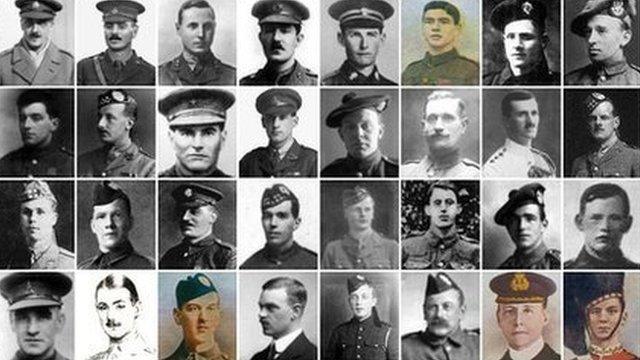Two-minute silence remembers war dead
- Published
A two minute silence is observed around Scotland to mark World War One armistice
A two-minute silence has been observed across Scotland to remember those who have died in conflicts across the world.
The Armistice Day silence takes place on the 11th hour, of the 11th day of the 11th month, marking when hostilities ended in 1918.
Scotland's main towns and city centres fell silent as public commemorations took place across the country.
At Holyrood, all parliamentary business was suspended for a ceremony.
First Minister Nicola Sturgeon, party leaders, MSPs, staff and visiting veterans joined Presiding Officer Tricia Marwick for an event.
Ms Marwick read a poem before Stuart McMillan MSP, the parliament piper, played All The Blue Bonnets Over The Border.
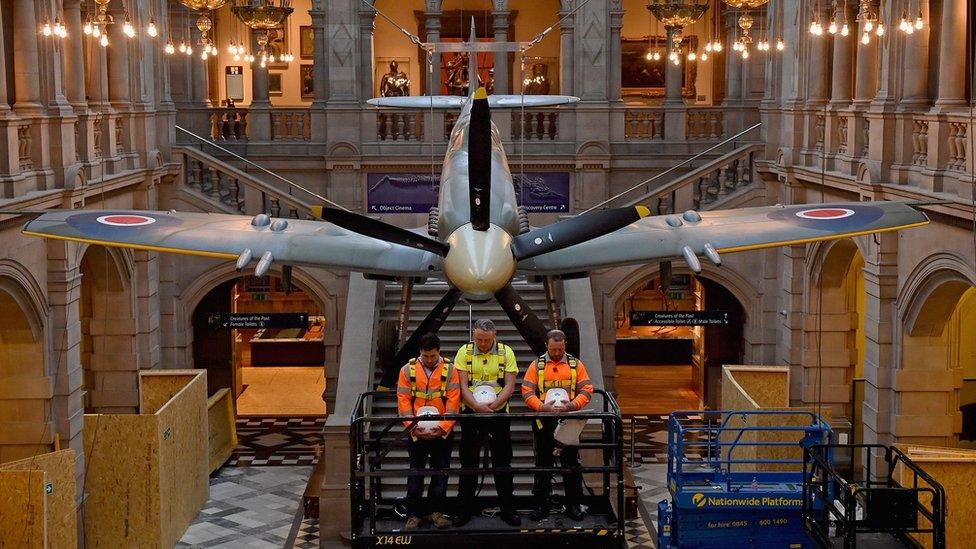
Workers stand under Spitfire LA198 at Kelvingrove Museum and Art Gallery
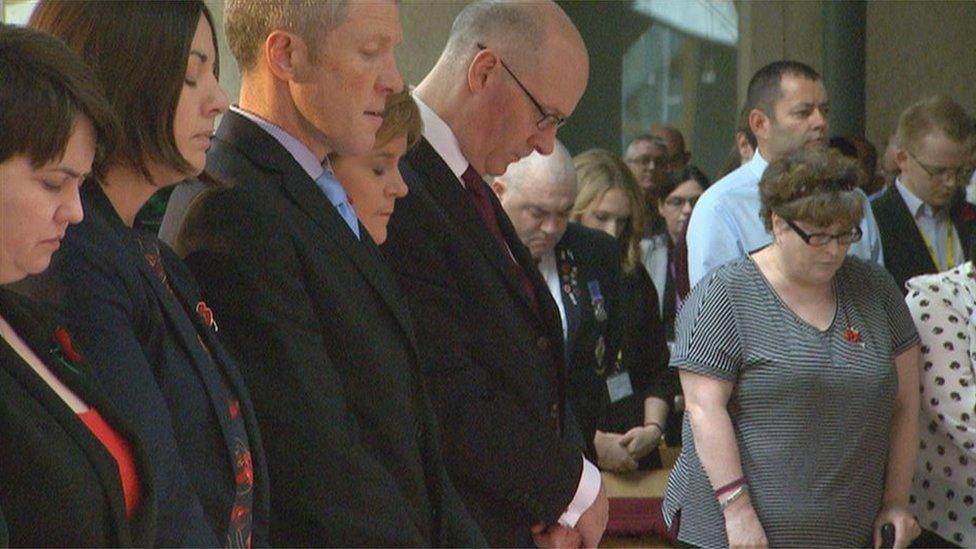
Politicians observed the silence in the Scottish Parliament
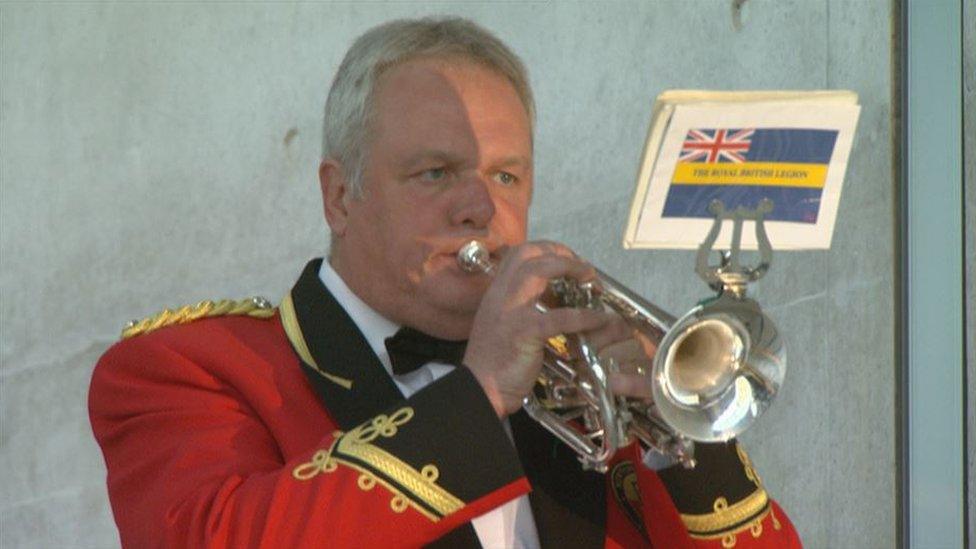
Angus Edmond, from Newtongrange Silver Band, played the Last Post at the Scottish Parliament service.
In Glasgow, crowds gathered in George Square to remember the fallen.
In Aberdeen, Lord Provost George Adam joined council staff and members of the public to observe the silence in Marischal College.
At the Erskine care home in Bishopton, Renfrewshire, which cares for veterans, everyone gathered around the home's Memorial Stone to pay tribute to their comrades in the Armed Forces and to remember those who gave their lives in service.
Armistice Day was marked in Dundee with the unveiling of a new digital Roll of Honour, marking the city's contribution in the First World War.
Great War Dundee hopes to tell the story of the men who left the city to fight in the war and of the loved ones left behind at home.
By the end of the Great War in 1918, more than 4000 men from Dundee had lost their lives.

'What I learned about war poets Owen and Sassoon'
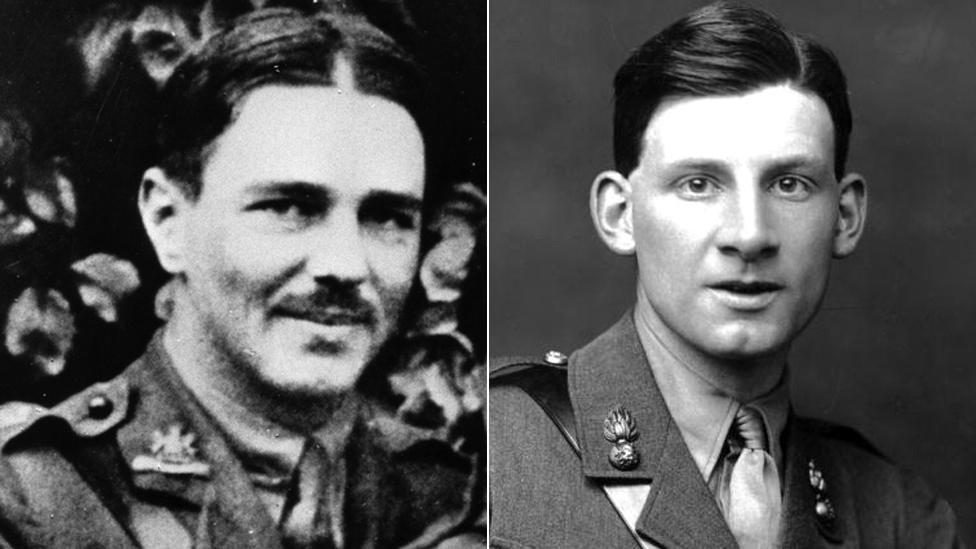
War poets Wilfred Owen and Siegfried Sassoon stayed at Craiglockart in Edinburgh
By BBC Scotland's Brian Taylor
Today, at the eleventh hour on the eleventh day of the eleventh month, I took up an offer to examine the collection at Craiglockart associated with the poets, Wilfred Owen and Siegfried Sassoon.
Along with a few university staff, I was given an intriguing insight into the period.
I confess that my knowledge of the poets is relatively limited. (I read them at school but not at university.) I had known that Owen tended to defer to Sassoon when they both, briefly, overlapped in staying at Craiglockart - although, in my view, Owen ends up the finer poet.
I had known that Owen returned to the Front and was killed just before the end of World War I. I had known that Sassoon survived the war although not that he lived until 1967.

Nine buildings and landmarks have been illuminated in the run-up to 11 November as part of the remembrance commemorations.
The SSE Hydro in Glasgow, the Falkirk Wheel and Edinburgh Airport's tower were among the places lit up.
The Poppyscotland charity said it hoped the displays would increase awareness of its cause and help raise money.
The Royal British Legion Scotland wants more private companies to take part in the two minute silence in future.
Airports, train stations, shopping centres and public sector bodies already observe the silence.
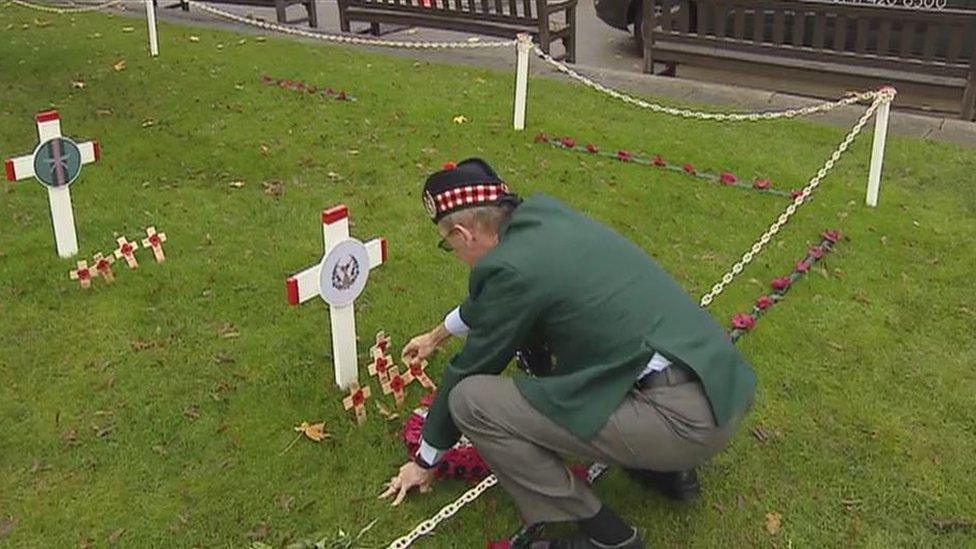
Veterans remembered the war dead in Glasgow's George Square
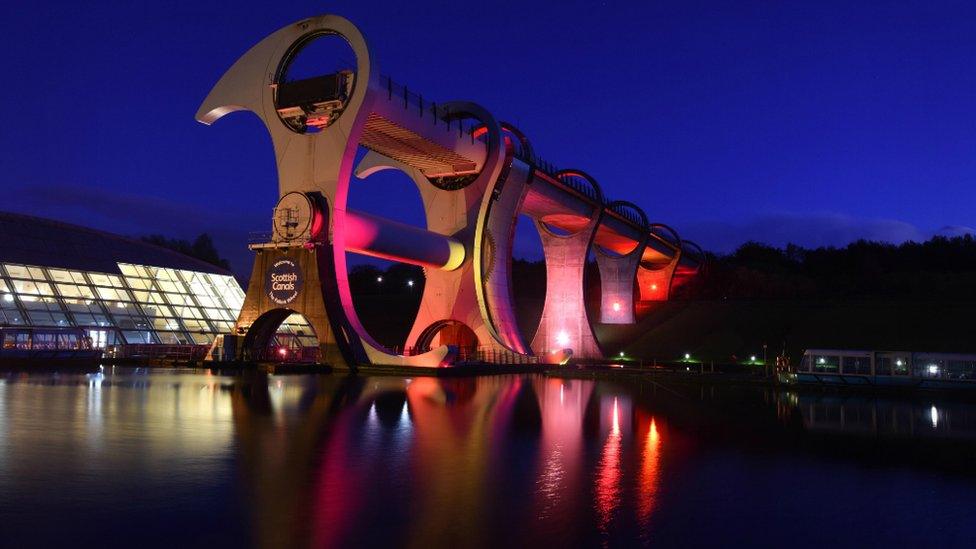
The Falkirk Wheel was one of the landmarks illuminated
- Published11 November 2015
- Published8 November 2015
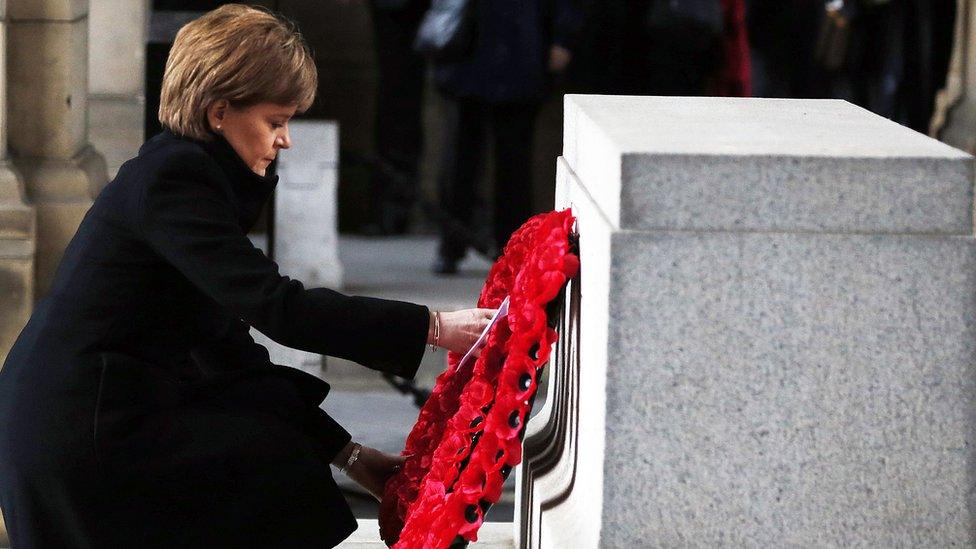
- Published9 November 2024
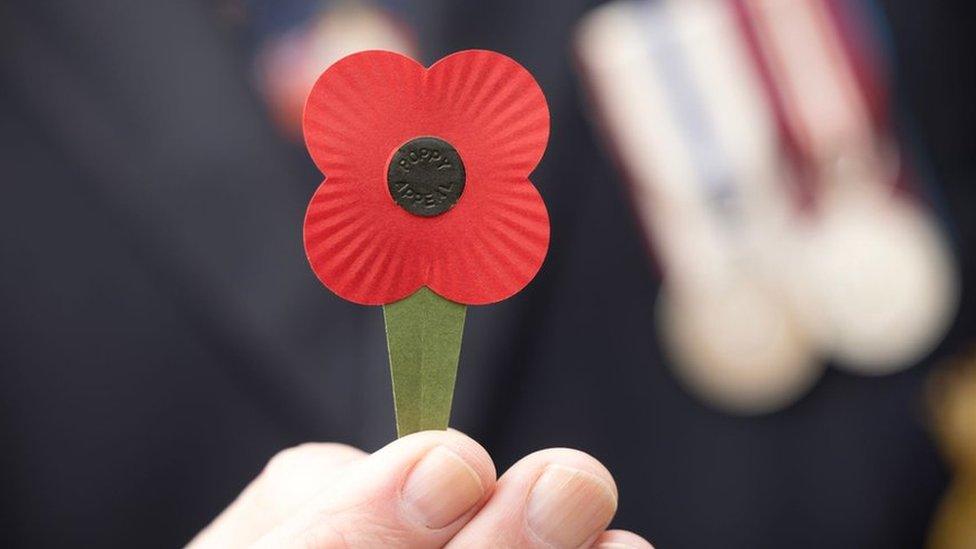
- Published9 November 2014
